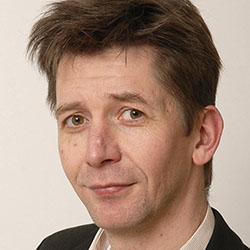Establish partnerships at Wageningen SDG Conference
Ensuring better food security, improved nutrition and more sustainable agriculture requires partnerships. So come along to the SDG Conference – ‘Towards Zero Hunger, Partnerships for Impact’ – in Wageningen on 30 and 31 August and network with potential partners.
Three out of ten people worldwide still go hungry or suffer health issues due to poor nutrition. No organisation, company or government can solve this problem on its own. Ensuring better food security, improved nutrition and more sustainable agriculture requires partnerships and an integrated approach to the food system – at a local, regional, national and international level.
Food system
A food system includes all actors, elements and activities related to the primary production, processing, distribution, preparation and consumption of food (catering and consumer), as well as the related waste processing, socio-economic and environmental aspects. It seems a lot. But in a nutshell, it means that you can recognise the coherence between everything that has to do with food production and consumption – from higher yields, clean water, healthy soils and market access to social, political, geographical and institutional aspects.
Sustainable Development Goals
Reducing hunger and fostering partnerships are Sustainable Development Goals (SDGs). These have garnered a great deal of support from many countries, companies, and organisations. Much of Wageningen University & Research’s (WUR) research focuses on Sustainable Development Goals. At the SDG Conference organised by WUR on 30 and 31 August in Wageningen, ‘Towards Zero Hunger, Partnerships for Impact’, both sustainable goals will be discussed.
Take the initiative
The conference also provides a stepping-stone to forming new partnerships. ‘Partnerships can come in all sorts of shapes and sizes,’ says Jelle Maas, co-organiser of the SDG Conference. Students who participate in the e-conference (the #Foodathon) can come up with an interesting solution that other organisations are interested in, but there are more options. Organisations can also agree to engage in further dialogue.’ To ensure the visibility of any new partnerships, there will be a studio where the new partners can be photographed together.
Which organisation would you like to get to know better in order to work together on SDGs? Which promising combinations can you see? Post your comment at the bottom of the blog.
Agrifood 5 Alliance
Wageningen itself signed a cooperation agreement with the American humanitarian NGO Mercy Corps during the conference. There will also be a presentation of the Agrifood 5 Alliance, WUR’s agriculture and food-focused partnership with four other top universities in this field: China Agricultural University, Cornell University (USA), UC Davis (USA) and the University of São Paulo (Brazil).
Future leaders
‘We felt that it was time to join forces to increase our global relevance in this area,’ says professor and former dean Tiny van Boekel, who was involved in the creation of the A5 Alliance. ‘Our joint mission focuses on training the leaders of the future to help bring about changes in the food production system.’
“We want to teach new generations of students to work on the global food issue – even when they’re still at university.
”
‘We have jointly expressed our intention to improve the structure of the education system,’ van Boekel continues. ‘Students not only need to acquire professional knowledge. We also want them to think about the direction the food system needs to head in order to reach the SDGs. To achieve this, we let them work on these goals in practice and give them the skills to apply that knowledge to this complex issue.’ Alongside ensuring inclusiveness – or preventing exclusion – and taking cultural and regional differences into account, this approach supports students’ ability to work with other disciplines (transdisciplinary skills) and helps them understand the bigger picture surrounding the global food problem.
New forms of education
Alongside other aspects, van Boekel says that this requires the development of new forms of education and thinks that we need to move away from the classic setup of lecturers simply passing on information to students. Examples include e-learning (distance learning and MOOCs), summer schools, workshops that help raise awareness, as well as education aimed at teaching students to work together with people from different backgrounds and with different perspectives. The Wageningen MSc course in Academic Consultancy Training is in line with this. In this subject, students from various studies work creatively with a design-oriented, specific question from a company or organisation.
You can read more via:
- Registration and programme for the SDG Conference, 30 and 31 August in Wageningen
- E-Conference: Foodathon – for young people
- The SDGs WUR is working on
- Subscribe to our SDG newsletter
- Blog: Cooperation needed to solve hunger
- MOOC Sustainable Food Security: Food Access, and Sustainable Food Security: Crop Production (free online education provided by WUR)
- Dutch version of this blog: Sluit partnerschap op Wageningen SDG-conferentie



Looking forward to meet people for collaboration of food security projects in Ghana. We operate a plant propagation company to produce high quality planting material for farmers to increase yields.